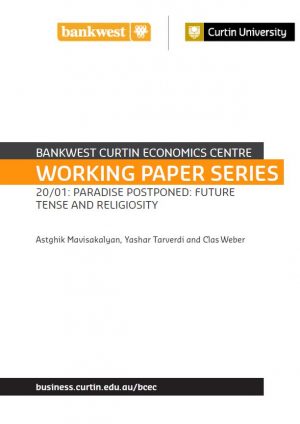Paradise Postponed: Future Tense and Religiosity
This paper identifies a new source of differences in religiosity: the presence of future tense marking in language.
We argue that the rewards and punishments that incentivise religious behaviour are less effective for speakers of languages that contain future tense marking. Consistent with this prediction, we show that speakers of future-tensed languages are less likely to be religious and to take up the short-term costs associated with religiosity.
What is likely to drive this behaviour, according to our results, is the relatively lower appeal of the religious rewards for these individuals. Our analysis is based on within country regressions comparing individuals with identical observable characteristics who speak a different language.




